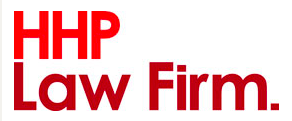31 October, 2019
Recent Development
On 3 September 2019, the Minister of Trade (MOT) issued Regulation No. 71 of 2019 on Franchise (MOT Regulation 71/2019).
MOT Regulation 71/2019 simplifies the requirements for doing franchise business in Indonesia compared to the Previous Regulations. The Government intends to make it easier to do franchise business in Indonesia. This client alert summarizes the material changes under this new regulation that will affect franchise businesses in Indonesia.
Implications for Franchisors
Before MOT Regulation 71/2019 was issued, both franchisors and franchisees are required to comply with difficult requirements, such as the 80% local content requirements, limitation of outlets and clean break letters for unilateral termination. However, MOT Regulation 71/2019 removes those provisions, which have been obstacles for franchisors since 2012.
MOT Regulation 71/2019 should have positive significant impacts for franchisors in doing franchise business in Indonesia. We may expect to see more franchise structures implemented in Indonesia, except for certain sectors that are still subject to other restricted regulations.
What the New Regulation Says
MOT Regulation 71/2019 becomes effective as of 4 September 2019 and it revokes several previous regulations that were issued between 2012 and 2014 on franchises, i.e., Regulation of Minister of Trade No. 53/M-DAG/PER/8/2012 as amended by Regulation of the Minister of Trade No. 57/M-DAG/PER/9/2014, Regulation of the Minister of Trade No. 68/M-DAG/PER/10/2012, Regulation of Minister of Trade No. 07/M-DAG/PER/2/2013 and Regulation of the Minister of Trade No. 60/M-DAG/PER/9/2013 (Previous Regulations).
Group Franchise Arrangements
While the Previous Regulations do not allow franchisors to appoint franchisees that have a controlling/subordinate relationship with the franchisors, either directly or indirectly, MOT Regulation 71/2019 no longer has this restriction.
Arguably, affiliates can be appointed as franchisees, and for any companies that operate through a subsidiary in Indonesia, franchise arrangements are now suitable for their business in Indonesia.
Further, a franchisor may now have control over its franchisees other than through the franchising agreement and other agreements.
No Local Content Requirements
The Previous Regulations required all franchise arrangements to fulfill the 80% local content requirement. However, in essence, MOT Regulation 71/2019 only encourages the use of domestic goods and/or products as long as such good/products meet the quality standards required by the franchisor.
Clearly, this is a very good news for all franchisee business actors, as fulfilling the 80% local content requirements always be the main issue in doing franchise business in Indonesia. This will increase the number of franchise arrangements in Indonesia in the near future. However, it remains to be seen how the "encouragement" to use domestic products will be implemented.
No Limitation of Outlets
While the Previous Regulations provides limitation of outlets for retail outlets and restaurants, MOT Regulation 71/2019 does not provide this restriction. This means that franchisees can own all the outlets without sub-franchising.
Language of Franchise Agreements
MOT Regulation 71/2019 now requires franchise agreements to be made in Indonesian language. This is a different approach to that in the Previous Regulations where franchise agreements could be made in other languages but they must be translated into Indonesian language by a sworn translator.
No Clean Break Letters
MOT Regulation 71/2019 does not provide a requirement to have a clean break letter for a unilateral termination. However, there is no further guideline on the unilateral termination procedures.
This could lead to an interpretation that franchisors can terminate franchise agreements unilaterally and the franchisees' STPW will be automatically invalid.
However, it remains to be seen how unilateral termination by franchisors will be implemented, and what the procedure will be. Further explanation from the MOT must be sought to clarify this issue.
Appointment of More than One Franchisee
MOT Regulation 71/2019 allows a franchisor to appoint more than one master franchisee with a clear separation of territory.
This liberalization will give more benefits for franchisors rather than for franchisees.
Validity of STPW
MOT Regulation 71/2019 does not state for how long a franchise registration certificate (STPW) for franchisors and franchisees will remain valid. The Previous Regulations stated that an STPW was valid for five years. MOT Regulation 71/2019 now differentiates the validity of STPWs between franchisors and franchisees depending on certain circumstances.
OSS System
MOT Regulation 71/2019 now includes provisions on the Online Single Submission (OSS) system that was introduced by the Government last year. STPW applications can only be made through the OSS system.
However, Regulation 71/2019 does not stipulate further on the procedures to report a unilateral termination under the OSS system. Therefore, further clarification must be sought.
Supporting Products
MOT Regulation 71/2019 does not state an obligation to limit the supporting products sold to not more than 10% of the total products sold in an outlet. This will lead to an interpretation that an outlet can sell supporting products without any limitation.
Actions to Consider
As the provisions under MOT Regulation 71/2019 are still general in nature, further consultation may be required to fully understand exactly how the significant changes will be implemented, such as local content requirements and clean break letter issues.
Further, franchise players that have an alternative business alliance in place can re-assess the existing arrangement and convert the arrangement into a franchise agreement (or if alternative business alliances may still be preferable)
For further information, please contact:
Daru Lukiantono , Partner, Hadiputranto, Hadinoto & Partners
daru.lukiantono@bakernet.com





